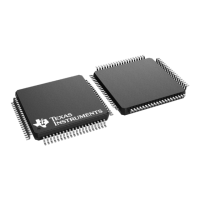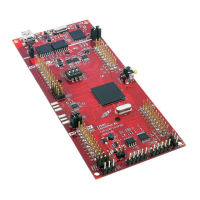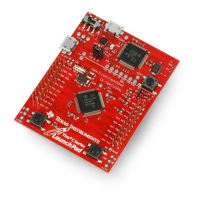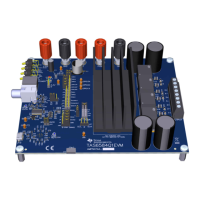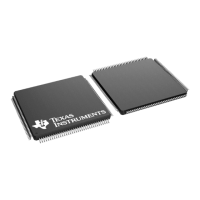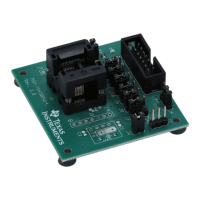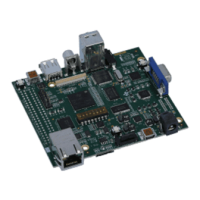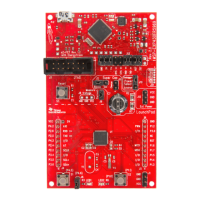Basic Operation
www.ti.com
866
SPNU563A–March 2018
Submit Documentation Feedback
Copyright © 2018, Texas Instruments Incorporated
Analog To Digital Converter (ADC) Module
Examples of conversion group priority:
• If an Event Group conversion is ongoing in single conversion sequence mode and Group2 and Group1
conversions are requested, then the ADC will finish conversion of channels selected in Event Group,
then switch over to converting channels selected in Group1, and then convert channels selected in
Group2.
• If Group1 conversions are ongoing in continuous conversion mode and Group2 conversion is
requested, then the ADC will complete converting the current channel for Group1 and switch over to
converting channels selected in Group2. The new conversion request for Group2 has a higher priority
than the pending continuous conversion request for Group1.
The conversion group freeze capability allows the application to override this default priority between the
conversion groups. Enabling the freeze capability allows the ADC to freeze a higher-priority conversion
group’s conversions whenever there is a request for conversion in another (lower-priority) group.
For example, setting the FRZ_EV bit in the ADEVMODECR register will allow the ADC to freeze ongoing
Event Group conversions whenever there is a pending request, or a new request for a Group1 or Group2
conversion. The conversions for the Event Group will be frozen as long as the Group1 or Group2
conversions are active. Once the Group1 or Group2 conversions are completed, the Event Group
conversions start from where they were frozen.
While a group’s conversions are frozen, the group’s STOP status bit is set. This bit is cleared once the
group’s conversions are restarted.
22.2.2.5 Conversion Group Memory Overrun Option
An overrun condition occurs when the ADC module tries to store more conversion results to a group’s
results’ memory which is already full. In this case, the ADC allows two options.
If the OVR_RAM_IGN bit in the group’s operating mode control register (ADEVMODECR,
ADG1MODECR, ADG2MODECR) is set, then the ADC module ignores the contents of the group’s results’
memory and wraps around to overwrite the memory with the results of new conversions.
If the OVR_RAM_IGN bit is not set, then the application program has to read out the group’s results’
memory upon an overrun condition; only then can the ADC continue to write new results to the memory.
22.2.2.6 Response on Writing Non-Zero Value to Conversion Group’s Channel Select Register
If the application writes a non-zero value to a group’s channel select register while that group’s
conversions are already being serviced, then that group’s conversions will be restarted with the new
configuration programmed in the channel select registers.
The following rules apply in terms of the effect on the ADC conversion sequence:
• If the new conversion request comes from the same group as the ongoing conversion, then the
ongoing conversion will be stopped in whichever stage it is in, and the new sequence of conversions
will be started.
• If the new conversion request comes from a separate group, then the ongoing channel’s conversion
will be completed before starting the new sequence of conversions.
The following rules apply in terms of the effect on the group’s results memory:
• If a group conversion is ongoing or is frozen, writing a non-zero value to the group’s channel select
register will also reset its results FIFO. This does not clear the contents of the results FIFO; only the
ADC module is allowed to overwrite the FIFO’s contents with new conversion results starting from the
first location.
• If the group conversion is completed (<GRP>_END flag is set), or the group is not being used, then
writing a non-zero value to the group’s channel select register will either be reset or not depending on
the value of the NoResetOnChnSel bit for that group (ADEVMODECR, ADG1MODECR,
ADG2MODECR).
– If the NoResetOnChnSel bit is 0, then the group’s FIFO will be reset.
– If the NoResetOnChnSel bit is 1, then the group’s FIFO will not be reset.
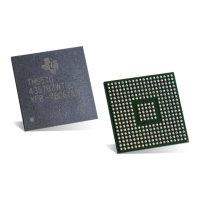
